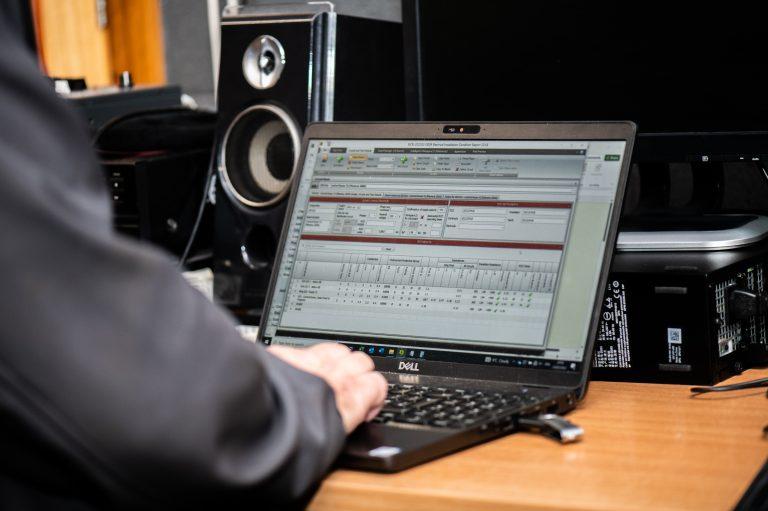Coiled extension leads can often be found in the workplace, they are ideal for longer distance extension lead requirements but they do carry a serious health and safety risk.
Coiled extension leads can often be found in the workplace, they are ideal for longer distance extension lead requirements. These leads can be particularly useful outdoors or perhaps in a factory or wet environment. However this seemingly safe everyday appliance carries a fatal danger.
An extension reel is an extension lead that rolls up, usually into the socket end, which in some cases has more than one socket on it (often 2 or 4). The cable in these extension reels can be any length from 2m to 25m. If the reel contains a particularly long cable then the danger is increased. Current flowing in a cable generates heat, this causes the temperature of the conductors to rise until the heat lost balances the heat generated. If the temperature gets too high the insulation on the cable softens and eventually melts. This can cause a serious hazard when using extension reels because the cable is tightly packed together. Excess cable in a loose jumble on the ground is far less likely to overheat than excess cable wound tightly on a reel.
The Health and Safety Executive warns of the potential dangers associated with the use of extension leads:
“Some items of equipment can also involve greater risk than others. Extension leads are particularly liable to damage – to their plugs, sockets, connections and the cable itself. Other flexible leads, particularly those connected to equipment which is often moved, can suffer from similar problems.”
We caught up with Electrical Engineer, Ashley Boyce, who as part of the Intersafe team carries out portable appliance testing across the country at various sites every day. He said:
“Extension reels carry a real risk, I have seen the hazards sadly on more than one occasion. Users can overload an extension reel and plug in appliances that exceed the rating for the extension lead. This is in turn can cause the cable to melt and presents a serious health and safety risk. When using extension reels, add together the amperage rating of all the appliances used on that cable and you can tell which size extension lead you need. Today, extension cords either have the rating stamped on a plug, or a tag is affixed telling you what amperage it is rated to support. Devices that produce heat or power tools that do heavy work tend to be high-amperage items.”
Ashley continues to explain how he recently found an extension lead in the back of a cupboard. An office employee commented that he didn’t need to bother testing that one as no-one ever uses it. Diligent as ever, Ashley tested it and it failed; in fact the centre of the coil had melted into a congealed mass and it couldn’t even be unrolled. This is a surprisingly common scenario.
Portable Appliance Testing involves testing the appliances including extension leads in your work environment. Having this tested completed on an annual basis ensures that you minimise the health and safety risks associated with using electricity and protects your employees and visitors to your site.




